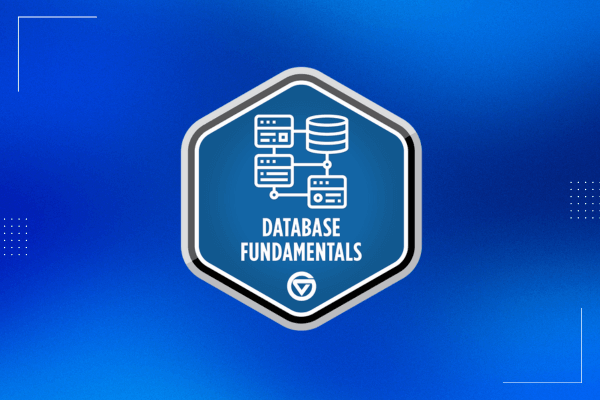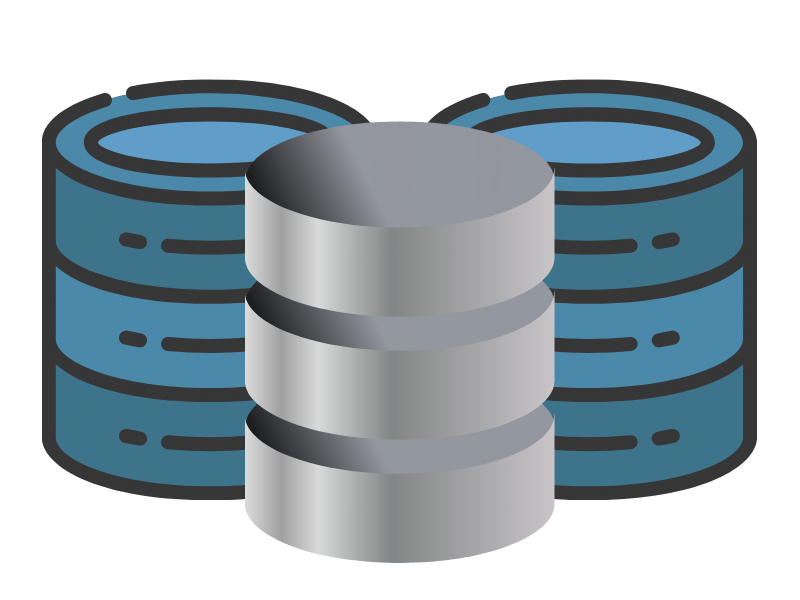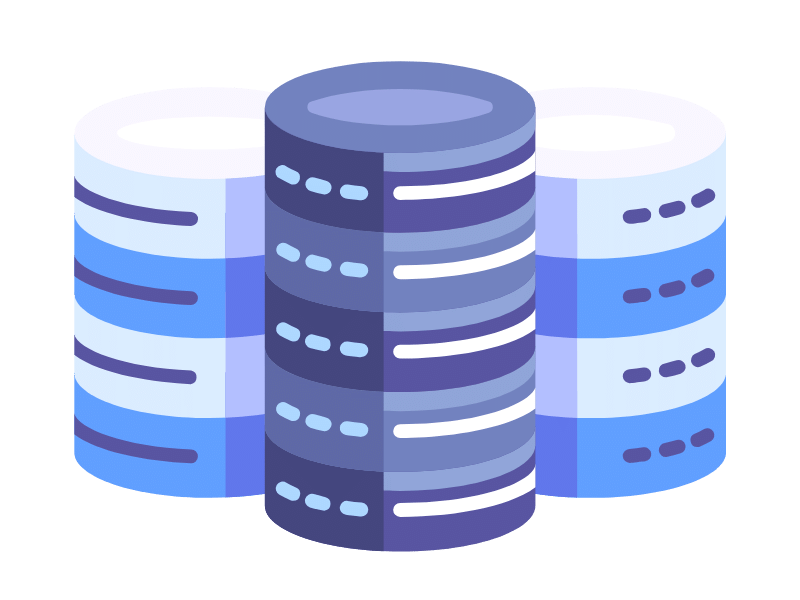-
Learn PL/SQL block structure for modular and organized code development.
-
Declare variables, constants, and data types to store and process data.
-
Use control structures like IF, CASE, and loops efficiently.
-
Manage cursors for processing multiple rows in result sets.
-
Handle exceptions to manage and debug runtime errors effectively.
-
Create procedures and functions for reusable, maintainable application logic.
-
Develop packages to group related procedures, functions, and variables.
-
Implement triggers for automatic execution based on database events







👋 10k+ learners get trained.
Pl/SQL Programming
Connect with Our Expert!
Find out more about Pl/SQL Programming
The PL/SQL Programming course provides a concise introduction to Oracle's procedural extension to SQL, focusing on developing efficient and secure database applications. It covers core concepts such as PL/SQL block structure, variables, control structures, cursors, exception handling, procedures, functions, packages, and triggers. The course emphasizes writing modular code, managing transactions, and optimizing performance, making it essential for database developers and administrators seeking to enhance their Oracle SQL capabilities.
Duration
35 hours
Fees
$399.00
Goal
Driven Approach
Live
Online Classes
Download Brochure
Please enter your information to download our brochure.
About Pl/SQL Programming
Pl/SQL Programming Packages
BEST SELLER
Pl/SQL Programming Corporate Package
Comprehensive Curriculum
Expert Instructors
Hands-on Practice
Real-world Projects
Interactive Learning
Flexible Learning Options
Career Guidance
BEST SELLER
Pl/SQL Programming Training
Comprehensive Curriculum
Expert Instructors
Hands-on Practice
Real-world Projects
Interactive Learning
Flexible Learning Options
Career Guidance
Course Contents
Send Course Enquiry
- What is PL/SQL and its advantages
- PL/SQL architecture and environment
- Differences between SQL and PL/SQL
- Anonymous blocks
- Nested blocks
- Declaring and using variables
- Conditional statements: IF, CASE
- Looping: FOR, WHILE, LOOP
- GOTO statement (rarely used)
- Implicit and explicit cursors
- Cursor attributes
- FOR loops with cursors
- Parameterized cursors
- Predefined exceptions
- User-defined exceptions
- RAISE and RAISE_APPLICATION_ERROR
- Creating and executing procedures
- Defining and calling functions
- IN, OUT, IN OUT parameters
- Parameter modes and scope
- Creating package specifications and bodies
- Advantages of using packages
- Public vs private elements
- Package initialization
- Row-level and statement-level triggers
- BEFORE and AFTER triggers
- DML triggers and business rules
- INSTEAD OF triggers for views
- Records and PL/SQL tables
- Collections: VARRAYs, Nested Tables, Associative Arrays
- COMMIT, ROLLBACK, and SAVEPOINT
- Handling transactions in PL/SQL
Writing efficient PL/SQL code
Bulk processing (BULK COLLECT, FORALL)
Code optimization techniques
- Hands-on coding exercises
- Database application development
- Case studies and mini-projects
Eligibility of the course
- Basic Knowledge of SQL: Familiarity with SQL commands and queries is essential.
- Understanding of Databases: Prior experience with relational database concepts is helpful.
- Educational Background: Suitable for students or professionals in computer science or IT.
- Programming Logic: Basic understanding of programming concepts like loops and conditions.
- No Prior PL/SQL Needed: Beginners can join with foundational SQL skills.
Key takeaways
- Comprehensive Study material
- Access to Practice tests
- Access to LMS course content
- Access to course assignments
- Industry-relevant case-studies

Course features

Comprehensive Curriculum

Expert Instructors

Hands-on Practice

Real-world Projects

Interactive Learning

Flexible Learning Options

Career Guidance
Course Benefits

Gain in-depth knowledge of Oracle's powerful procedural language for database development.
Enhance your SQL knowledge with procedural constructs, improving overall query performance.
Learn to write modular, reusable code using procedures, functions, and packages.
Use triggers and scripts to automate routine tasks and enforce business rules.
PL/SQL is in demand for roles like Oracle Developer, DBA, and Data Analyst.
Learn exception handling to build robust and fault-tolerant database applications.
Apply skills through hands-on exercises and projects that mimic real business needs.
Build a strong foundation to pursue advanced Oracle certification paths.
FAQs
Asked Questions & Answer
PL/SQL is Oracle’s procedural extension to SQL, used for writing complex database programs.
Anyone with basic SQL knowledge or a background in IT or computer science.
No, but understanding basic programming concepts is helpful.
You’ll learn PL/SQL syntax, procedures, functions, packages, cursors, and triggers.
Yes, it starts from the basics and gradually covers advanced topics.
PL/SQL skills are valuable for roles like database developer, DBA, and analyst.
Yes, most platforms or institutions provide a certificate upon successful completion.
You’ll need Oracle Database and SQL Developer or similar tools for practice.
It includes both theoretical concepts and practical coding exercises.
Duration varies, but typically ranges from 4 to 8 weeks.
Didn’t find the answer? Contact us here

Featured Links
Contact us
B-706, Arabiana, Casa Rio, Palava, Dombivli (East) - 421204, Maharashtra, India
- PMP® Certification Course |
- CAPM Certification Course |
- PMP Certification Training in Mumbai |
- PMP Certification Training in Pune |
- PMP Certification Training in Hyderabad |
- PMP Certification Training in Delhi |
- PMP Certification Training in Chennai |
- PMP Certification Training Course in Ahmedabad |
- PMP Certification Training Course in Bangalore |
- PMP Certification Training Course in Bhubaneswar |
- PMP Certification Training Course in Chandigarh |
- PMP Certification Training Course in Gandhinagar |
- PMP Certification Training Course in Faridabad |
- PMP Certification Training Course in Dombivli |
- PMP Certification Training Course in Coimbatore |
- PMP Certification Training Course in Ghaziabad |
- PMP Certification Training Course in Gurgaon |
- PMP Certification Training Course in Indore |
- PMP Certification Training Course in Jaipur |
- PMP Certification Training Course in Mysore |
- PMP Certification Training Course in Lucknow |
- PMP Certification Training Course in Kolkata |
- PMP Certification Training Course in Kochi |
- PMP Certification Training Course in Nagpur |
- PMP Certification Training Course in Navi Mumbai |
- PMP Certification Training Course in Patna |
- PMP Certification Training Course in Pimpri |
- PMP Certification Training Course in Vadodara |
- PMP Certification Training Course in Trivandrum |
- PMP Certification Training Course in Thane |
- PMP Certification Training Course in Surat |
- PMP Certification Training Course in Noida |
- PMP Certification Training Course in Visakhapatnam |
- PMP® Certification Training Course in Doha |
- PMP Certification Training in New York |
- PMP Certification Training Course in Chicago |
- PMP Certification Training in Austin |
- PMP Certification Training in Minneapolis |
- PMP Certification Training in Atlanta |
- PMP Certification Training in Dallas |
- PMP Certification Training in San Diego |
- CAPM Certification Training in Mumbai |
- CAPM Certification Training in Bangalore |
- CAPM Certification Training in Hyderabad |
- CAPM Certification Training in Delhi |
- CAPM Certification Training in Pune |
- CAPM Certification Training in Chennai |
- CAPM certification Training in Kolkata |
- CAPM certification Training in Gurgaon |
- CAPM certification Training in Noida |
- CAPM Certification Training in Ahmedabad |
- PMI Certified Professional in Managing AI (PMI-CPMAI)™ |
- PMI-RMP - PMI Risk Management Professional |
- PMI-PMOCP - PMI® Project Management Office Certified Professional
- AZ-900: Microsoft Azure Fundamentals |
- AZ-104: Microsoft Azure Administrator |
- AZ-204: Developing Solutions for Microsoft Azure |
- AZ-305: Designing Microsoft Azure Infrastructure Solutions |
- AZ-400: Designing and Implementing Microsoft DevOps Solutions |
- AZ-500: Microsoft Azure Security Technologies |
- AI-900: Microsoft Azure AI Fundamentals |
- DP-900: Microsoft Azure Data Fundamentals |
- CLF-C02: AWS Certified Cloud Practitioner |
- GCP-FC: Cloud Digital Leader |
- GCP-ACE: Associate Cloud Engineer |
- GCP-PCA: Professional Cloud Architect |
- GCP-PCD: Professional Cloud Developer |
- GCP-PCE: Professional Cloud DevOps Engineer |
- GCP-PDE: Professional Data Engineer |
- GCP-PCNE: Professional Cloud Network Engineer |
- GCP-PCSE: Professional Cloud Security Engineer |
- GCP-ML: Professional Machine Learning Engineer |
- GCP-PBA: Professional Business Intelligence Analyst |
- DP-100: Designing and Implementing a Data Science Solution on Azure |
- DP-203: Data Engineering on Microsoft Azure
Disclaimer
- PMP® is a registered mark of the Project Management Institute, Inc.
- CAPM® is a registered mark of the Project Management Institute, Inc.
- PMI-ACP® is a registered mark of the Project Management Institute, Inc.
- Certified ScrumMaster® (CSM) ia a registered trademark of SCRUM ALLIANCE®
- While we strive to ensure that all prices listed on our website are accurate, we reserve the right to modify them at any time without prior notice.
Copyright © Certifyera Consulting Services. All Rights Reserved | Designed and Developed by WebAnaya





